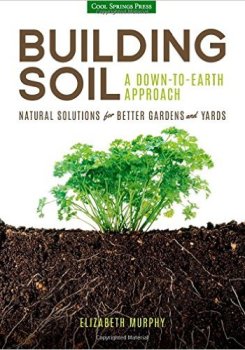Make Your Own Soil Mix
Recipes for making a healthy winter above-ground garden.
When growing above ground—whether in raised beds, potted plants, container gardens, or transplant flats—success is determined by the ingredients in the soil mix. The following potting soil and container garden recipes ensure the right conditions to grow healthy plants. Use these as a starting point to experiment in adjusting ingredients and amounts according to your particular needs and resources, remembering that the potting soil needs to provide adequate air, water, nutrients, and physical support for your above-ground garden.
Potting Mediums
Soil-based
This classic recipe for a soil-based mix is dense enough to provide support for mature container gardens, potted plants, or raised beds. Using garden soil as a main ingredient, it is also a cost-effective way to stretch potting mixes further. Compost holds water and releases nutrients, while sand creates good drainage. If a lighter soil mix is desired, replace sand with vermiculite.
1 part compost or leaf mold (use only mature compost, passed through 1/2 inch screen)
1 part garden topsoil*
1 part coarse builder’s sand
1 tsp lime or dolomite lime per gallon
1/2 cup worm castings per gallon**
Mix ingredients thoroughly. Wet the mixture before using, until it has the damp feel of a wrung-out sponge.
*Light, loamy topsoil is best for potting mixes. If not readily available, it can be purchased at a garden supply store. To avoid soil-borne diseases, sterilize home-harvested topsoil by placing in the oven at 200°F for 20 minutes.
**Replace worm castings with a balanced fertilizer according to recommended rates, usually ~3 Tbsp. per gallon.

Soil-less Recipe
Without heavy soil as an ingredient, soil-less potting mixes are finer and lighter, optimizing aeration and drainage. Use these mixes for starting seeds, transplants, or for potted plants that need to be moved periodically.
1 part coconut coir
1 part screened compost
1 part vermiculite or coarse builder’s sand
1 tsp lime or dolomite lime per gallon
1/2 cup worm castings per gallon**
**Replace worm castings with a balanced fertilizer according to recommended rates, usually ~3 Tbsp. per gallon.
Break up the fibers of coconut coir and soak until hydrated. Remove from water and mix soaked coconut coir with vermiculite. For seed-starting planting mixes, pass the compost through a 1/4 inch screen. For transplants and established plants, use a 1/2 inch screen. Add the remaining ingredients and mix thoroughly. Prior to planting, wet the mixture until it feels like a damp, wrung-out sponge.
Elizabeth Murphy is a Soil Scientist and is author of Building Soil: A Down-to-Earth Approach: Natural Solutions for Better Gardens & Yards. (Cool Springs Press, 2015) She’s based in Ashland, Oregon.